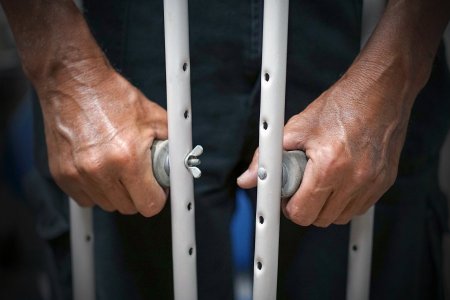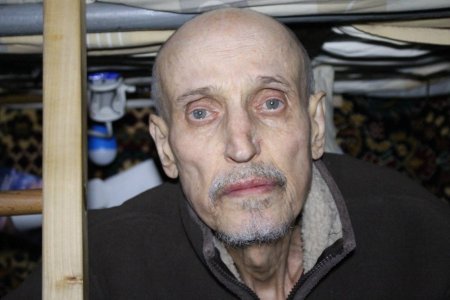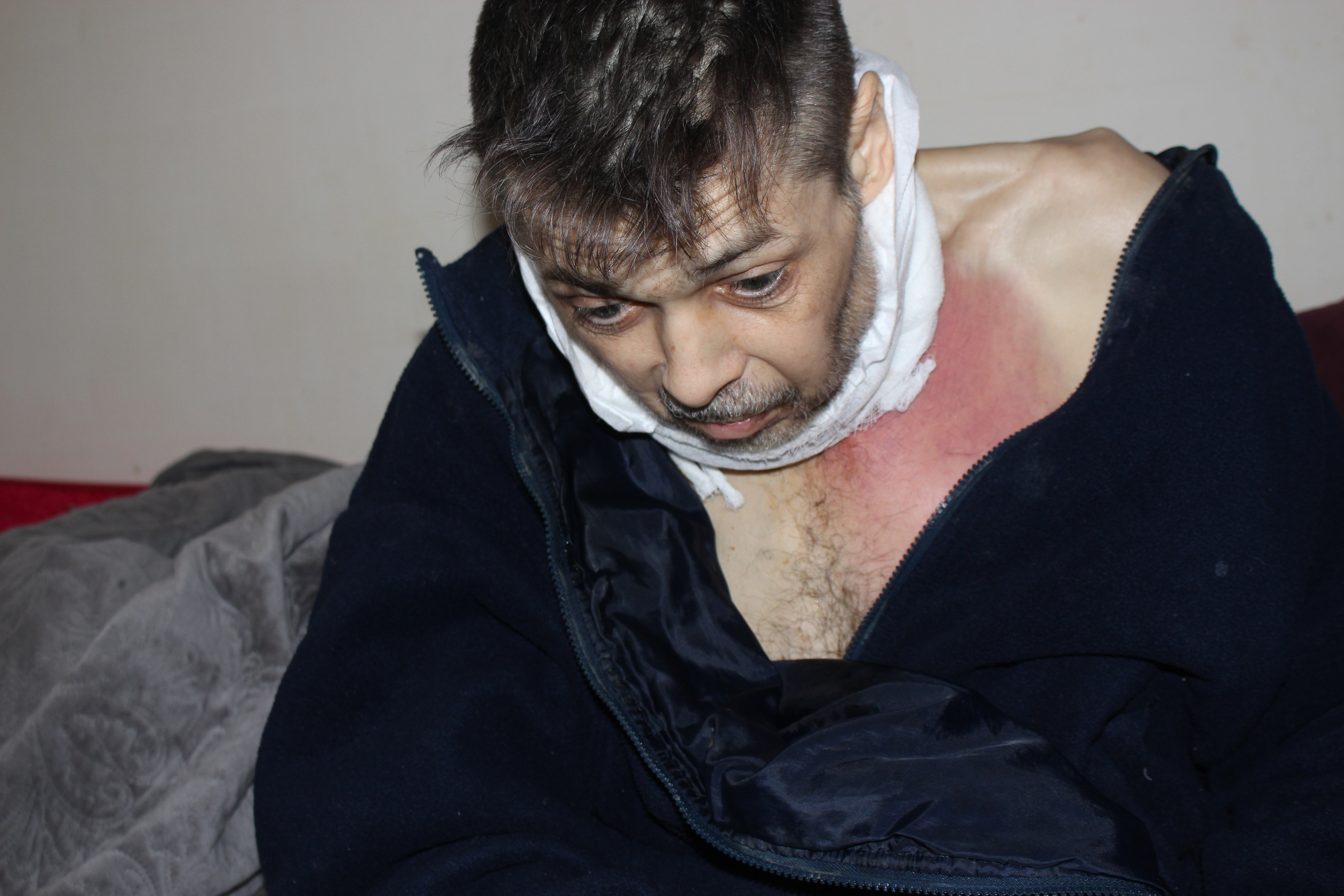
According to human rights activist Andriy Didenko: "Vitaliy was killed consciously and intentionally because, for them, a human being is a trash.” Andriy tells the story of a life prisoner who should have been released for health reasons but was left behind bars to die.
Vitaliy Matukhno, a life prisoner who had a fourth-stage tongue root cancer, went through two circles of hell of court proceedings and was condemned to a slow martyrdom by the Lviv Court of Appeal decision on January 30, 2023. Court did it on behalf of Ukraine. On February 3, Vitaliy Matukhno died in the prison hospital.
Vitaliy Matukhno’s story
We first met him on July 7, 2022, during a monitoring visit to Ivano-Frankivsk Penitentiary Facility No. 12.
The administration of the Facility informed us that there is a suspicion that the life prisoner has cancer. However, they did not tell him about it because the diagnosis was still being checked. Eventually, it turned out that Vitaliy had third-stage cancer. He was transferred to Lviv Multidisciplinary Hospital #19 at the State Penitentiary Institution (the only closed-type specialized facility for cancer patients in the country).
Matukhno had already spent twenty-six years as a life prisoner. He was sentenced to death by firing squad for a particularly grave crime: the murder of two people. However, Matukhno argued that he was convicted unjustly due to the mistake of the regional first instance court. The court did not examine the defense's evidence or look into the case's merits, and the Supreme Court later confirmed the sentence without a chance for review and without the prospect of release. The death sentence was then commuted to life imprisonment. We know many cases when people were arbitrarily sentenced to life imprisonment.
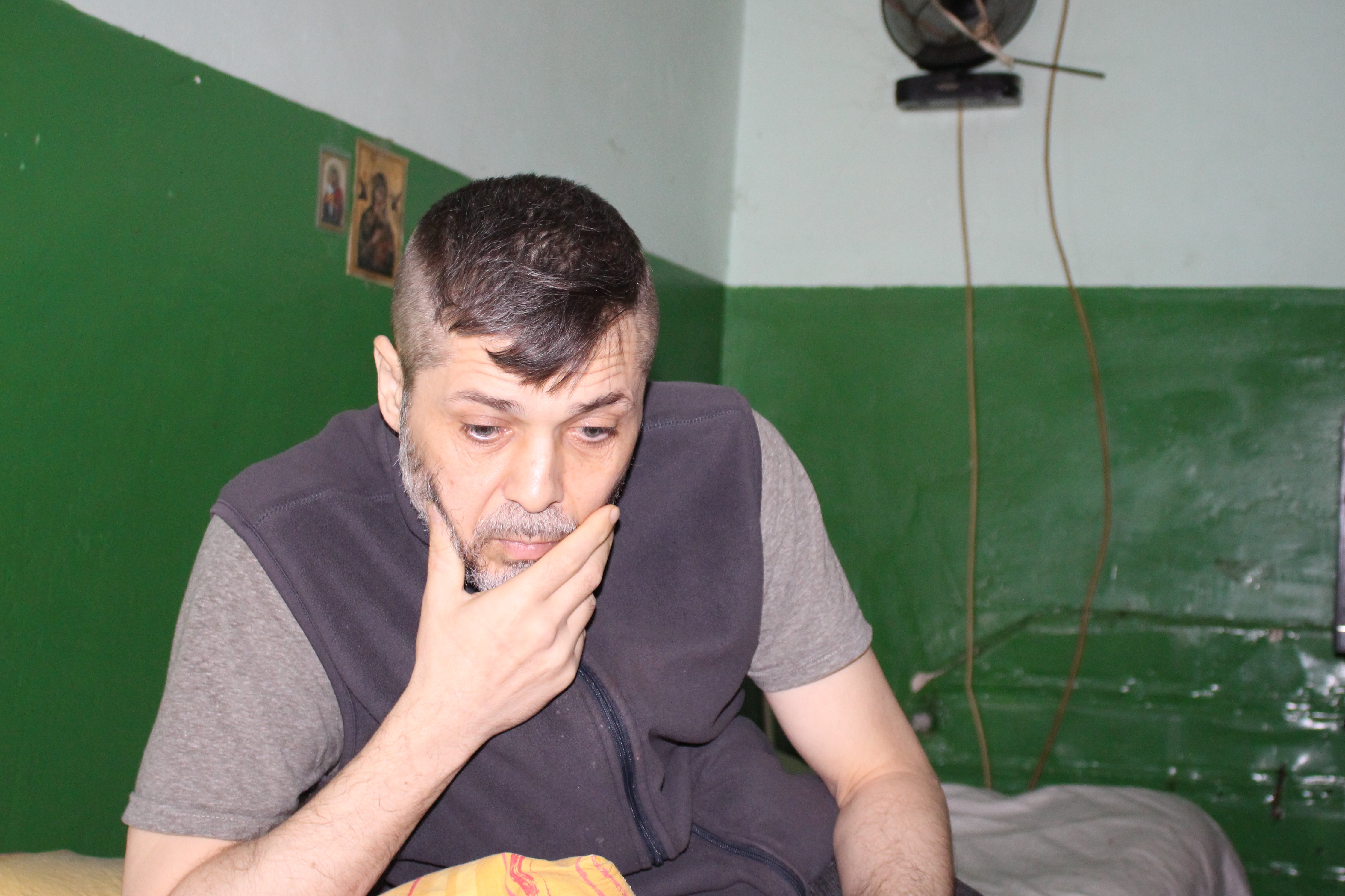
Matukhno became ill in January 2022. During the monitors' visit to the Multidisciplinary hospital №19 in September 2022, Vitaliy complained of unbearable pain, inadequate detention conditions in the facility, and that he was not provided with medical care: the doctor did not attend him, and there were no medical tests. KHPG monitors recorded that the ceiling in the damp cell was leaking, which caused the walls and ceiling to be covered with fungus. Due to emergency power outages, the stable temperature in the cell was not maintained. There was no hot water. V. Matukhno was not provided with diet food, although he had nutrition problems. We wrote about this.
Due to the critical state of health and the danger to the patient's life, the lawyers appealed to the European Court of Human Rights, which on December 9, 2022, applied Rule 39 of the Rules of Court, indicating interim measures to be implemented by the Government of Ukraine. The ECHR called for proper medical examination, treatment, and appropriate care for the patient. However, instead of fighting for Matukhno's life, penitentiary authorities transferred him to a separate ward, where he was held until his death.
Although this ward differed from the previous smelly cell with unsanitary conditions and mold and mildew on the walls, this transfer was a demonstrative eyewash. The convict was left alone in his ward without necessary care. According to the Medical and Social Expert Commission (MSEC) conclusion of 01.11.2022, Matukhno was assigned the first B group of disability and stressed the need for constant outside help. However, no one took care of him, violating his right to palliative care. There was no panic button in his ward, while at times of exacerbation of his illness, Matukhno suffered from unbearable pain and suffering. He could not speak, let alone shout, and he could only crawl to the bars and knock on the closed door. However, to open the cell of a convicted life prisoner, at least three staff guards are required. In most cases, the hatch in the cell door was opened, and Matukhno was injected with painkillers through the bars. Vitaliy did not receive any medication apart from painkillers. Moreover, if the daily dose of the narcotic painkillers was exhausted, they were replaced with other drugs that did not help relieve the pain.
He spent his last days alone in a cold and dark ward, as the power went out for a long time daily. During the power outage, it was impossible to heat water or eat, as Matukhno could only eat food ground through a blender.
As the ECHR noted in its judgment, such detention conditions constitute gross human rights violations, particularly Article 3 of the European Convention on Human Rights (Prohibition of torture).
Gradually, Matukhno's health condition deteriorated significantly: tumors appeared on his neck, which burst, pus leaked from them, and his throat was regularly bleeding, sometimes very much. All this occurred without care, without rescue, in a locked cell. On weekends and holidays, Makhno was absolutely helpless. During Matukhno's stay in the hospital, the doctor in charge, O.A. Hrytsayishyn, examined the patient some three times.
Release from punishment for health reasons
The procedure of exemption from serving a sentence due to a severe illness is designed to ensure the convicted person's right to proper treatment and the ability to save their own life. The joint order of the Ministry of Health of Ukraine and the Ministry of Justice of Ukraine of August 15, 2014 (No. 1348/5/572) approved the List of diseases, providing grounds for release from further serving a sentence. This List includes the most severe forms of diseases that can no longer be treated. According to part 3 of Article 50 of the Criminal Code of Ukraine, punishment is not intended to cause physical suffering or humiliation of human dignity. Therefore, part 2 of Article 84 of the Criminal Code of Ukraine allows release from punishment or its further serving a person who, after committing a crime or passing sentence, fell ill with a severe illness that prevents them from doing the punishment. When deciding on this issue, the court considers the gravity of the crime, the nature of the disease, the personality of the convicted person, and other circumstances of the case.
However, current practice shows that the courts, the prosecutor's office, and the doctors themselves believe that it would be better if the patient died in the prison hospital than to give them a chance for treatment or at least the opportunity to die on the outside.
Matukhno's story is rather illustrative and typical of the Ukrainian legal system. Most recently, we reported about Volodymyr Rubchenko, who was sentenced to four years of probation but died in detention due to the penitentiary authorities' failure to provide medical care and comply with the decisions of the European Court.
In 2022, 432 people died in the institutions of the State Penitentiary Service of Ukraine, 362 of them due to diseases.
Prosecutor's office
The prosecutor's office always objects when it comes to releasing a person for health reasons. We wrote about this.
We do not know the reason for such brazen and fundamentally inhuman behavior. Please pay attention to this person (photo); we are writing about her for the second time. And in case of another death in a Multidisciplinary hospital No 19, we will have to write for the third and fourth time because she acts on behalf of the State in the Lviv Court of Appeal in all cases involving release on health grounds.
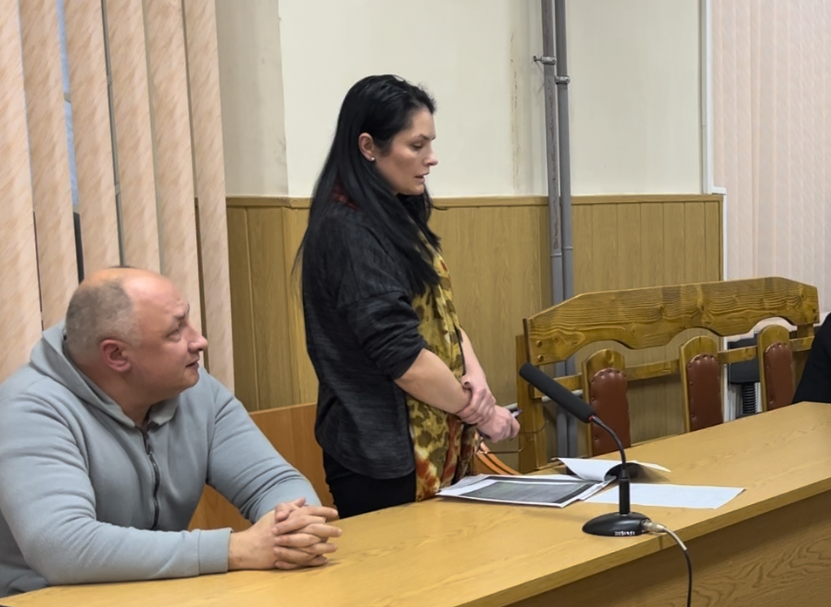
Remember this name: Iryna Romanivna Humenna. Iryna Romanivna has a strict principle concerning release on health grounds: she believes that seriously ill prisoners should die in the prison hospital. She twice objected to Matukhno’s release. She argued that the crime committed by Matukhno was too severe and that he did not work while serving his sentence. Neither the severity of the disease and the patient’s condition nor the defense’s arguments and request to allow Vitaliy to die in freedom nor the ECHR decision did not convince Iryna Romanivna.
The court
Three Lviv Court of Appeal judges considered the Matukhno case: the presiding judge, Galapats I. I., with the participation of judges Bereziuk O.G. and Romaniuk M.F. They listened to all the arguments of the defense, viewed the photos of Matukhno, who was already in critical condition at that time, and agreed to attach to the case file the monitoring report of KHPG on visits to the Multidisciplinary hospital №19. Then they went to the deliberation room and, in ten minutes, returned with a decision: to deny a request to release convicted Matukhno due to his serious illness.
We want to remind you that this category of cases is not subject to cassation appeal; therefore, the court decision is final and cannot be appealed. The lawyer asked the court to take into account the critical state of the patient’s health and allow him to die in freedom under the care of his family and friends. But the court was relentless. We do not know why the court made such a decision, why it deliberately and purposefully deprived a person of the right to die in human conditions without suffering. We know that Matukhno was sentenced to life imprisonment. We know that there is a court sentence that should be enforced. But the court should prioritize the concepts of humanity and justice! These concepts are the foundation of the State’s prestige and the judiciary’s credibility. Is it humane and fair to leave a person to die in a cold cell alone and without care? Is this justice? The ECHR judgment of December 9 stated that the conditions of Matukhno’s detention were inadequate, and he received insufficient medical treatment. Still, for some reason, the court did not even recall that the ECHR decisions take precedence and are binding. In her defense speech, the lawyer referred to the report of the NPM (National Preventive Mechanism under the Ukrainian Parliament Commissioner for Human Rights) based on the results of a monitoring visit to Lviv Multidisciplinary Hospital No. 19 on 09/14/2021. This report clearly states that this institution violates the right of convicts to palliative care.
![Засідання Львівського апеляційного суду від 30 січня 2023 року [Матухно] Session of the Lviv Court of Appeal on January 30, 2023](https://khpg.org/files/img/1608815988.png)
Doctors
In Matukhno’s case, his doctor in charge, Oleksandr Hrytsayishyn, behaved even worse than the prosecutor, who was categorically against his release. During our first meeting with Hrytsayishyn in September 2022, he refused to provide any medical documentation, was quite aggressive, and even outraged that the monitors had intruded into his untouchable sphere of activity, where he himself determines who to treat and who can be forgotten.
The judges considered the report of the LKK (medical advisory commission), signed by four doctors, including Hrytsayishyn. It states that the disease from which Matukhno suffers prevents him from further serving his sentence. The key phrase of the report is that his disease “impedes the serving of the sentence”! But during the court hearing, Hrytsayishyn furiously convinced the court how well Matukhno lives in the prison hospital and how well he is treated, so there is no point in releasing and transferring him because he will die anyway. Hence, it is better to let him die in prison. I wonder, if it were Hrytsayishyn’s relative, would he also advise him to die in a prison hospital? It’s a rhetorical question.
During the court hearing, Dr. Hrytsayishyn convinced the court how well Matukhno lives in the prison hospital and how well he is treated, so there is no point in releasing and transferring him because he will die anyway. Hence, it is better to let him die in prison.
In fact, the oncology department in this notorious hospital should be closed so that people do not continue to suffer and die, as Vitaliy Matukhno, Ivan Yastrebov, and many other helpless people we do not know about did. I hope the leadership of the Health Care Center of the State Penitentiary Service and the Ministry of Health will support this idea. At the same time, it would be possible to provide a closed-type unit in the civilian oncology hospital to hold prisoners, where they will receive proper care and treatment.
In conclusion
“The human being, his or her life and health, honor and dignity, inviolability and security are recognized in Ukraine as the highest social value” is a direct action provision of the Constitution of Ukraine. But for this provision to work, we must care about human beings. The court should guarantee observance of human rights, not violate them, the prosecutor’s office should decently represent the state in court proceedings, and doctors should show mercy to their patients, even if they are prisoners.
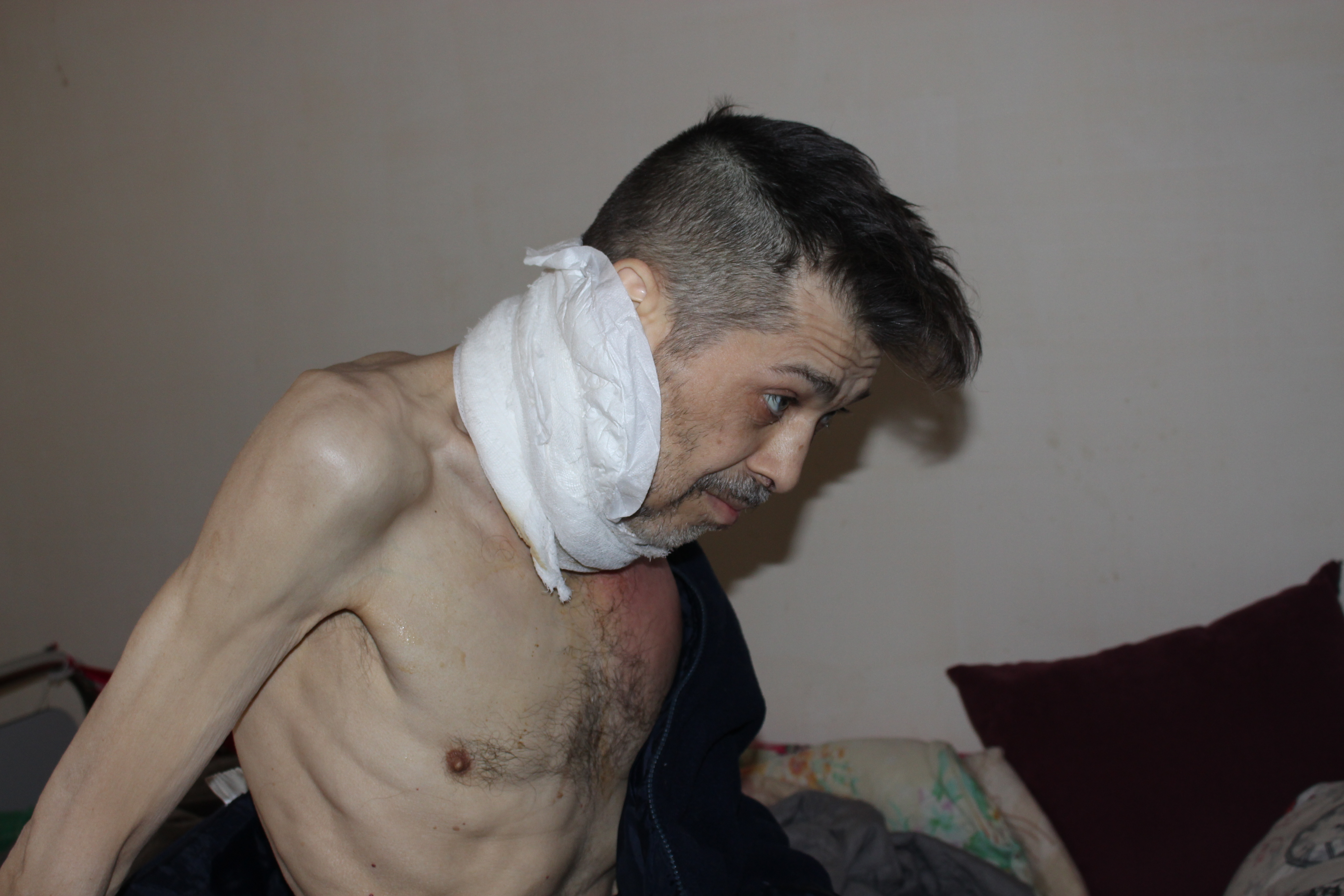
In the case of Matukhno v. Ukraine, the ECHR will definitely make a final decision, which will undoubtedly recognize Ukraine's violation of Article 3 (Prohibition of torture) of the European Convention on Human Rights, and most likely Article 2 (Right to life). Let's hope violators with specific names will be held accountable: judges, prosecutors, and doctors.
